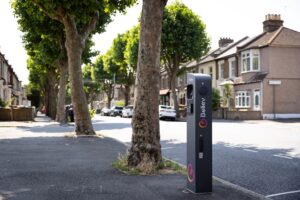Defra’s response to the confusion surrounding UK waste disposal and management has arrived. But is this another catchy slogan or a policy with the potential to make real change?
Over the course of this year, Environment Journal has consistently reported on the widespread misunderstandings that plague and hamper Britain’s desire to recycle. Back in March, we published news that 71% of households did not fully understand which materials belonged in which bins, with just 8% saying they were clear on this, while changes recommended by the District Council’s Network to overcome came in at a projected cost of £465million, at a time when local authorities are already facing bleak financial realities.
The results of a major Defra consultation on recycling were then published and found that a significant overhaul of processes and regulations was needed to bring all areas of the country in line, meaning no matter where people live or work the rules for waste disposal would be the same.
This has now been turned into a new ‘common sense approach’ to the issue, dubbed Simpler Recycling. Key changes within this include:
*All authorities in England must collect the same recycled waste streams for recycling or composting from households – paper and card, glass, metal, food waste, garden waste.
*All non-household municipal addresses in England – including businesses, schools, and hospitals – must make arrangements to have the same set of recyclable waste streams, with the exception of garden waste, collected for recycling and composting, and must present waste in compliance with those agreements
*Exemptions will be introduced to allow ‘comingling’ of some dry stream materials
*Food waste must be collected weekly for most households from 2026
*Garden waste should not contain ash, full-sized trees, invasive weeds and species, soil, turf cuttings, and animal waste
Specific dry recycling streams have been green-lit for a shared collection, with plastic and metal receiving the most support from local authorities, followed by glass and metal, with several councils reporting that this was already happening.
‘Simpler Recycling should end the confusion around what can and can’t be recycled and we welcome the focus on the dry core materials of paper and card, plastics, metals and glass packaging,’ said Paul Anderson of The Recycling Association. ‘But it is disappointing that local authorities in England will be able to commingle this material, as we would have preferred paper and cardboard to be kept separate as a minimum. That would have avoided contamination and enabled better quality of paper and cardboard, but also the other materials where paper can act as a contaminant.’
Statutory guidance has also been drawn up, proposing that local authorities are required to collect all non-recyclable (residual) waste at least once a fortnight, if not more frequently. This is intended to prevent infrequent collections impacting on areas, while also curbing the trend towards three or four weekly bin collection days. You can read a full breakdown of Simper Recycling here.
‘This announcement is a prompt and clear message that will make planning and operations more efficient for local authorities, packaging producers, brands and waste managers,’ said Margaret Bates, Managing Director at On-Pack Recycling Label Ltd. ‘Defra has clearly worked hard to clarify the detail of Simpler Recycling as quickly as possible and this statement should be a welcome assurance for local authorities and wider industry.’
More on waste and recycling:
Public believes plastic will soon be history as single-use ban begins
Organisations invited to commit used workwear for groundbreaking polyester recycling
Extended Producer Responsibility: The urgent need to unbox clear policy
Image: Patricia Valério

















